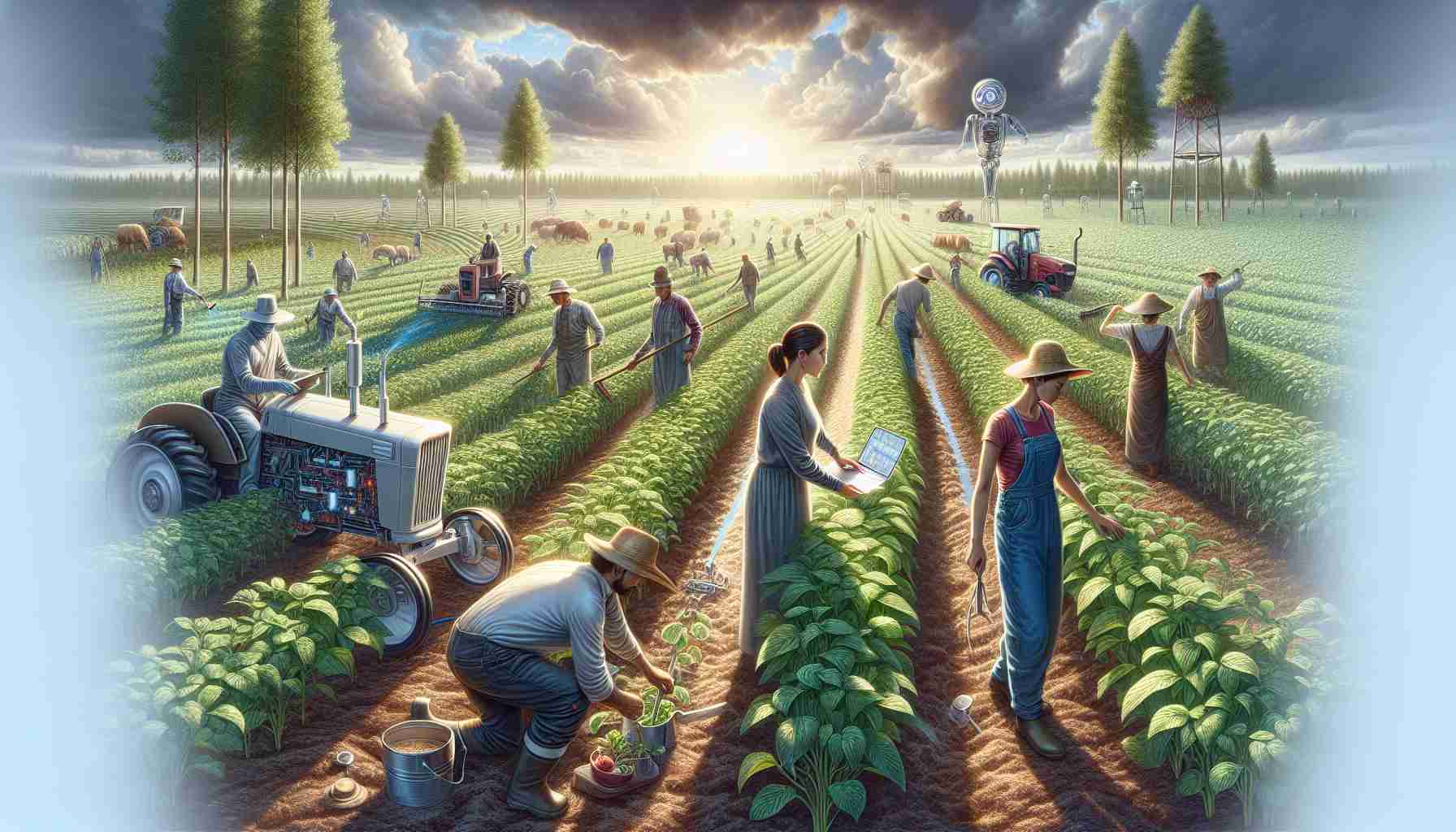The Role of AI in Addressing Labor Shortages in Agriculture
As the agricultural sector grapples with a significant labor shortage, innovative solutions are becoming essential. Matija Zulj, the CEO of AGRIVI, emphasizes the potential of artificial intelligence to bridge this gap effectively. The current state of labor availability in farming has raised alarms, prompting the exploration of advanced technologies.
AI-driven tools can streamline a variety of farming operations, from planting to harvesting, thereby decreasing the dependency on manual labor. Technologies such as automated machinery and smart sensors can significantly enhance efficiency, allowing farmers to manage their crops with fewer workers. This transformation not only optimizes productivity but also supports sustainable practices, minimizing waste and resource usage.
Moreover, Zulj points out that implementing AI solutions can lead to better decision-making. With data analytics and machine learning, farmers can anticipate crop diseases, optimize resource distribution, and predict market trends, making their operations more resilient in the face of challenges.
As the agricultural landscape evolves, embracing AI technology could prove vital for farmers. This approach not only addresses workforce shortages but also paves the way for smarter, more sustainable agriculture. In a world where food security is increasingly threatened, the integration of AI could redefine the future of farming, ensuring that it thrives amidst challenges.
How AI is Revolutionizing Agriculture and Mitigating Labor Shortages
Introduction
The agricultural industry is facing a significant challenge as labor shortages persist, putting immense pressure on food production systems worldwide. To tackle this issue effectively, the integration of artificial intelligence (AI) is emerging as a transformative strategy. As we delve into the various aspects of this innovative solution, we’ll examine its benefits, limitations, and potential future trends.
How AI is Used in Agriculture
AI applications in agriculture encompass a variety of functions, such as:
1. Precision Farming: AI enables farmers to employ data-driven strategies to enhance yield. Drones equipped with AI technology can monitor crop health, while sensors collect data to inform decisions about irrigation and fertilization.
2. Automated Machinery: Robotics and autonomous vehicles are beginning to take over tasks like planting, weeding, and harvesting. This automation reduces the reliance on human labor by increasing efficiency.
3. Predictive Analytics: ML algorithms analyze historical data to forecast weather patterns, pest outbreaks, and market prices, helping farmers make informed decisions and optimize their operations.
Pros and Cons of AI in Agriculture
Pros:
– Increased Efficiency: AI tools can significantly reduce the time and labor needed for tasks, allowing for more crops to be processed with fewer resources.
– Resource Optimization: Smart farming technologies help in the efficient use of inputs like water and fertilizer, promoting sustainability.
– Data-Driven Decisions: Farmers gain actionable insights through AI, helping them adapt to changing conditions and improve yield.
Cons:
– High Initial Investment: Implementing AI technology can require substantial upfront costs, which may be a barrier for some farmers.
– Technical Expertise Required: The effective use of AI tools necessitates training and knowledge, creating a potential skills gap.
– Dependence on Technology: Over-reliance on technology can pose risks if systems fail or data is compromised.
Market Analysis and Trends
As of 2023, the market for AI in agriculture is projected to grow rapidly. Experts foresee the global agricultural AI market reaching approximately $4 billion by 2025, driven by increasing investments from institutions and the growing need for food security. The trend toward sustainable agriculture practices will further amplify this growth, as farmers seek innovative ways to enhance productivity while minimizing environmental impact.
Future Predictions
Looking ahead, AI is expected to play an increasingly pivotal role in the evolution of agriculture. Innovations such as genetic algorithm-driven crop optimization and AI-driven supply chain management could become standard practices. Additionally, the potential for integrating solar-powered AI devices in agriculture may emerge, aligning with global sustainability initiatives.
Compatibility and Integration
The successful integration of AI in agriculture often hinges on the compatibility of new technologies with existing farming practices. Farmers must consider how AI solutions can be tailored to their unique needs and how they can enhance rather than replace traditional methods.
Conclusion
As the agricultural sector navigates significant labor shortages, embracing AI technology is becoming not just beneficial but essential. With its ability to enhance efficiency, optimize resource usage, and empower farmers with data-driven insights, AI is poised to redefine the farming landscape. As we face increasing challenges related to food security, sustainable practices informed by AI may very well hold the key to a thriving agricultural future.
For more insights on the evolving landscape of agriculture, visit AGRIVI.
